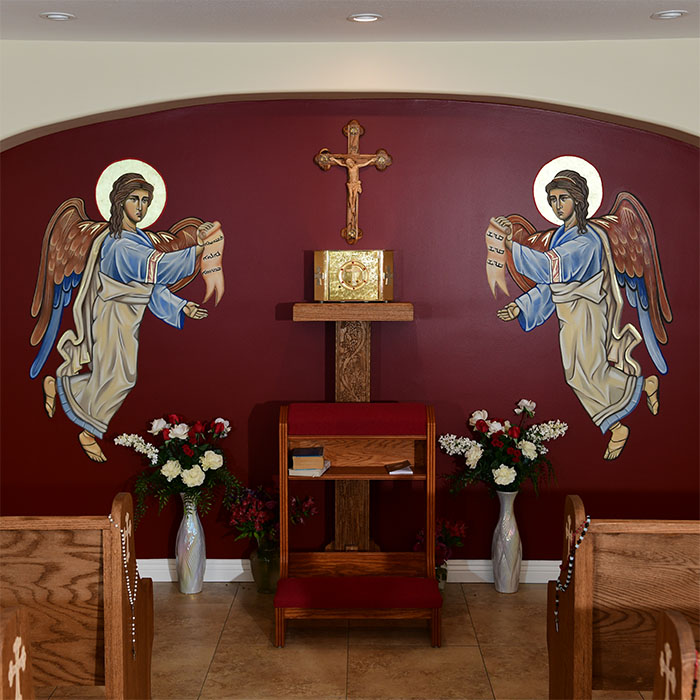St. Michael’s Chaldean Catholic Church
What Are the Sacraments?

The sacraments of the Catholic Church hold a profound significance for believers, shaping their spiritual journey, fostering a deeper connection with God, and anchoring their faith in tangible rituals. Rooted in biblical foundations and centuries of tradition, these sacraments serve as conduits of divine grace and play a pivotal role in the lives of Catholics worldwide.
Encounters with Divine Grace:
At the heart of the sacraments’ importance lies their capacity to convey divine grace to individuals. Catholics believe that God’s grace is conveyed through these sacred rituals, transforming hearts and souls. Baptism, for instance, signifies spiritual rebirth and cleansing from sin, while the Eucharist offers believers a direct encounter with Christ’s Body and Blood, nurturing their spiritual growth and unity with the Church.
Strengthening Faith and Community:
The sacraments reinforce the bonds of faith and community within the Catholic Church. Through the sacrament of Confirmation, individuals are fortified with the gifts of the Holy Spirit, empowering them to bear witness to their beliefs and engage actively in the Church’s mission. Matrimony sanctifies the union of two individuals, emphasizing the importance of a strong family unit as a cornerstone of the faith community.
Physical and Spiritual Nourishment:
The Eucharist, known as the “source and summit” of Catholic life, provides both physical and spiritual nourishment. As believers receive the consecrated bread and wine, they partake in the eternal sacrifice of Christ, drawing strength from this communion with His divine presence. This act not only deepens their relationship with God but also fosters a sense of unity among fellow worshipers.
Forgiveness and Healing:
The sacraments of Reconciliation and Anointing of the Sick offer profound avenues for forgiveness and healing. Reconciliation, or Confession, allows individuals to confess their sins and receive absolution, fostering spiritual healing and reconciliation with God and the Church. Anointing of the Sick provides solace and spiritual comfort to those facing illness or mortality, emphasizing God’s compassion and care during times of vulnerability.
Guidance and Vocation:
Holy Orders and Matrimony guide individuals on their paths of service and commitment. Through Holy Orders, men are ordained to serve as deacons, priests, or bishops, leading and shepherding the Church. Matrimony elevates the institution of marriage to a sacred vocation, where couples mirror the love between Christ and the Church, fostering a faith-centered family life.
Cultivating Holiness:
The sacraments challenge believers to pursue holiness and virtue in their daily lives. Each sacrament offers an opportunity for reflection, transformation, and a renewed commitment to living in accordance with God’s teachings. These rituals serve as reminders of the call to live a life of love, humility, and service, embodying Christ’s example.
Conclusion:
In the tapestry of Catholic belief and practice, the sacraments stand as vibrant threads, woven with the teachings of Christ, the wisdom of Scripture, and the enduring traditions of the Church. They are not merely rituals; they are channels of divine grace that guide believers through life’s milestones and challenges, deepen their relationship with God, and instill a sense of purpose and unity within the Catholic community. The importance of the sacraments lies in their ability to bridge the gap between the divine and the human, inviting individuals to experience God’s presence in tangible and transformative ways.
